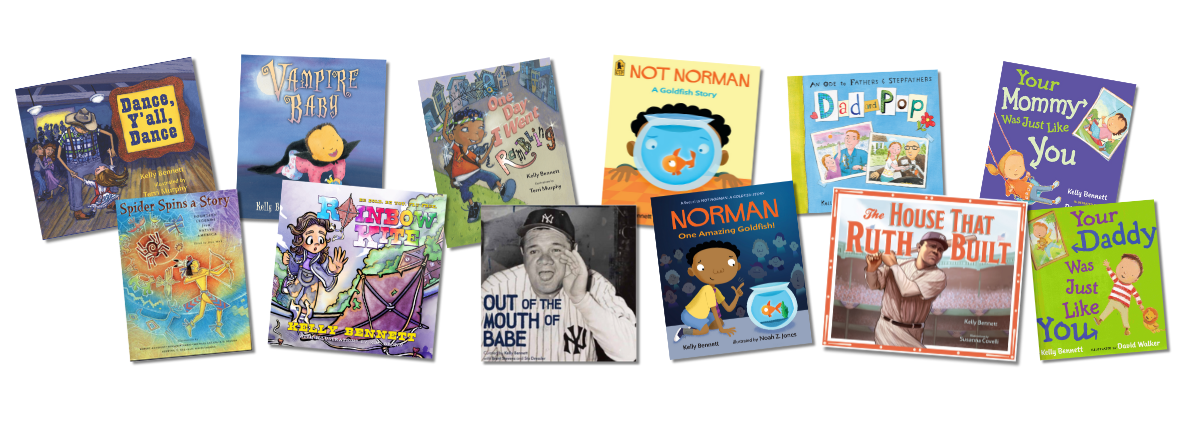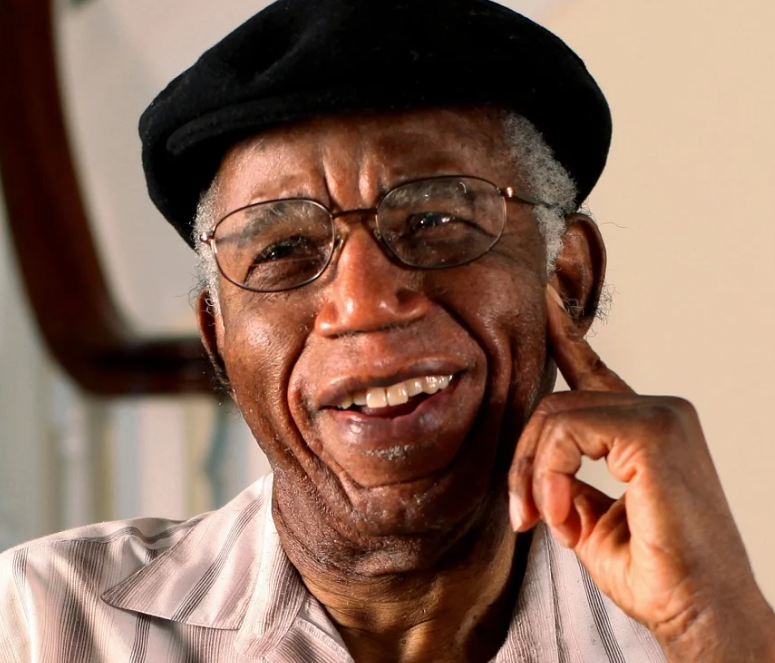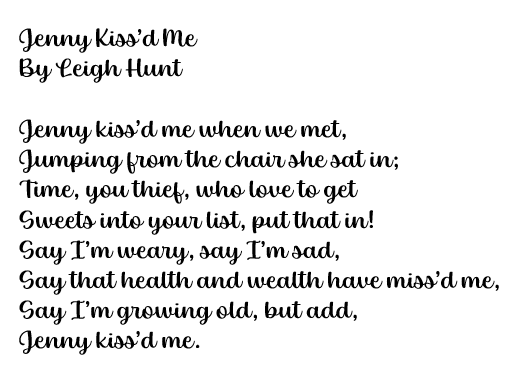Poetry Challenge #273-Akiko Yosano
There are days when I do not want to write a poem—because I don’t want to do the thinking that goes into choosing a topic or form or emotion or or or…Those days Haiku is our default. Haiku is one of the first poetry forms students learn because it’s short: 3 lines, rules are specific: 17 syllables 5-7-5, and the topic preset: nature. Even better, as Cindy taught me: singing the beginning of Moonlight in Vermont sets the Haiku rhythm.
Before Haiku there was the Tanka. A tanka is a 5-line 31-sylable poem that is actually 2 poems. The first being a complete haiku—in which the “nature” is often more human based. The second poem portion of a tanka is a response or reflection on the first.
“snow and stars shine on her disheveled hair; ginkgo leaves scatter in the sunset; the nightingale sleeps with doubled-up jeweled claws.””
Tanka are more nuanced in ways that are unique to Japanese and difficult to discuss in English terms, for that reason, many of those published in English are translations from Japanese, especially the works of Akiko Yosano whose tanka incorporate vivid, sensual images and frank freshness that were startling—for their time, and especially coming from a woman—and still surprising and evocative today.
Akiko Yosano, born on Dec. 7, 1878, is the pen name of this Japanese author, poet, pioneering feminist, pacifist, and social reformer. Her real name was Yosano Shiyo, “Ho Sho.” Akiko began writing poetry in high school and published her first volume of poetry in her early 20s, entitled Midaregami (Tangled Hair), the collection included 400 tanka poems. Before her death in 1942, Akiko published about 20 volumes of Tanka. Here are translations of a few of her poems:
Poetry Challenge #273
Tanka Like Akiko
In honor of Akiko Yosano, let’s try our pens at creating a tanka with a theme of love, passion, life.
Tanka are five-lines long with a set number of syllables in each line: 5-7-5-7-7. They consist of 2 parts that are actually more like two separate poems. The first poem is a 3-lines of 17 syllables, with 5 syllables in the 1st line, 7 in the second and 5 in the third. The 2nd poem has two 7 syllable lines.
Begin by creating the first poem incorporating nature to create a metaphor or simile to describe a human or human trait.
The last 2 line poem respond to/reflect upon the first part.
Once the two poems are created, complete the poem by rework the 3rd line of the haiku to include engo (en-goh): words act as a binder between the upper and lower poem to help connect the two parts and complete the tanka.
Set Your Timer for 7 Minutes
Start Writing!
Don’t Think About it, Tanka!
Cindy Faughnan and I began this 7-Minute Poetry Challenge 2400+ days ago. Now we take turns creating prompts to share with you. Our hope is that creatives—children & adults—will use our prompts as springboards to word play time. If you join us in the Challenge, let us know by posting the title, a note, or if you want, the whole poem in the comments.
Click on Fishbowl link and sign up to receive email notifications from Kelly's blog (aka The Fishbowl):
All who subscribe, comment or share a poem will be entered in . . .
Poetry Challenge #272-John McRae's Legacy
“In Flanders fields the poppies blow…”
The red poppy is the symbol of remembrance worn to honor fallen soldiers because of a poem written by John McCrae, a Canadian doctor and poet born on November 30, 1872.
During World War 1, McCrae served as brigade-surgeon to the First Brigade of the Canadian Field Artillery which, in April 1915, was involved in the Second Battle of Ypres, a horrifically bloody fight during which about 87,000 people lost their lives.
The following day, McCrae noticed the wild poppies blooming in the fields of makeshift graves and was moved to write the poem “In Flanders Field,” written from the point of view of the fallen soldiers.
The poem, published in Punch Magazine, that Dec 1915, was hugely popular and very soon therein, the red poppy was adopted as the memorial flower.
Poetry Challenge #272
Leave Taking
Imagine someone is leaving.
Write a poem from that person’s point of view. In the poem, discuss what might happen after they are gone.
Focus on one specific thing they will miss about the place. Or perhaps that will not be missed.
Set Your Timer for 7 Minutes
Start Writing!
Don’t Think About it, just write It!
Cindy Faughnan and I began this 7-Minute Poetry Challenge 2000+ days ago. Now we take turns creating prompts to share with you. Our hope is that creatives—children & adults—will use our prompts as springboards to word play time. If you join us in the Challenge, let us know by posting the title, a note, or if you want, the whole poem in the comments.
Click on Fishbowl link and sign up to receive email notifications from Kelly's blog (aka The Fishbowl):
All who subscribe, comment or share a poem will be entered in . . .
Poetry Challenge #271-As Defined By...poet Gayl Jones
This time, because it’s her birthday and we can, let’s celebrate the write, poet, activist whom author Calvin Baker called "The Best American Novelist Whose Name You May Not Know.”
Happy Birthday Gayl Jones!
Gayl Jones has always known who she is and where she’s from. By seven, she was writing her own stories…or maybe channeling is a better word for it. At 26 Jones first novel, Corregidora was published. In a 2015 interview Toni Morrison told the NY Times “… no novel about any black woman could ever be the same after this.”
Jones was born Nov 23, 1949, in Lexington, Kentucky. Her father Franklin worked as a cook, and her mother Lucille was a homemaker, storyteller, and writer who wanted more for her daughter, granddaughter, great granddaughter of storytellers. So, DNA! Jones’ style of writing, it’s said, “had to have been influenced by the stories her mother and grandmother told her.”
Voted, one of AALBC.com’s 50 Favorite Authors of the 20th Century & 2022 National Book Award Finalist for The Birdcatcher, Jones is also a poet with several published collections including Song of Anninho. Her AALBC write-up states that Jones tells “…a painful truth of the past, present and hopefully not the future.”
In a 1982 interview, Gayl Jones said that just like most people, she felt “connections to home territory-connections that go into one’s ideas of language, personality, landscape.”
Poetry Challenge #271
As Defined By
Using Jones’ poem Circle for inspiration, capture one moment, one incident, one action or interaction with a significant person in your life in a poem.
Include a few lines of dialogue that round-out that person’s personality.
Set Your Timer for 7 Minutes
Start Writing!
Don’t Think About it, just Define It!
Cindy Faughnan and I began this 7-Minute Poetry Challenge 2000+ days ago. Now we take turns creating prompts to share with you. Our hope is that creatives—children & adults—will use our prompts as springboards to word play time. If you join us in the Challenge, let us know by posting the title, a note, or if you want, the whole poem in the comments.
Click on Fishbowl link and sign up to receive email notifications from Kelly's blog (aka The Fishbowl):
All who subscribe, comment or share a poem will be entered in . . .
Poetry Challenge #270-Achebe's Way
Chinua Achebe (born 11/16/1930) was a writer, poet, editor, and is called the founding father of African fiction. Born in eastern Nigeria, of the Igbo tribe, he often wrote about his native Nigeria and much of his works explore themes of race and heritage. Known more for his essays and novels, notably Things Fall Apart, than poetry, Achebe was nevertheless, awarded the Commonwealth Poetry Prize in 1972 for his first poetry collection, Beware, Soul-Brother, and Other Poems. Achebe, who began writing in his 20s, once said that the way an Irish writer wrote about Nigeria prompted him to begin. He died in 2013.
“A Man Who Makes Trouble for Others Is Also Making Trouble for Himself”
Pine Tree in Spring
by Chinua Achebe
Pine tree
flag bearer
of green memory
across the breach of a desolate hour
Loyal tree
that stood guard
alone in austere emeraldry
over Nature’s recumbent standard
Pine tree
lost now in the shade
of traitors decked out flamboyantly
marching back unabashed to the colors they betrayed
Fine tree
erect and trustworthy
what school can teach me
your silent, stubborn fidelity?
Poetry Challenge #270
Achebe's Way
Use the ode-like style of Achebe’s poem, “Pine Tree in Spring” to create a poem of your own.
Think of an object you admire and describe it. Tell its story.
Finally, ask it a question.
Set Your Timer for 7 Minutes
Start Writing!
Don’t Think About it, just WRITE IT!
Treat yourself to more of Achebe’s poetry: CLICK!
Cindy Faughnan and I began this 7-Minute Poetry Challenge 2000+ days ago. Now we take turns creating prompts to share with you. Our hope is that creatives—children & adults—will use our prompts as springboards to word play time. If you join us in the Challenge, let us know by posting the title, a note, or if you want, the whole poem in the comments.
Click on Fishbowl link and sign up to receive email notifications from Kelly's blog (aka The Fishbowl):
All who subscribe, comment or share a poem will be entered in . . .
Poetry Challenge #269-With No Particular Place to Go
So what is it about those Russian writers of old? Was it something in the ice? the snow? … the vodka?
For example, because it’s his 204th birthday (Nov 9, 1818), let’s consider, Ivan Sergyevitch Turgenev . Ivan came from Russian nobility. He was born in Orel, more than a hundred miles south of Moscow to a family with expectations. After university, he joined the Ministry of the Interior at St. Petersburg, but his passion was writing. Like so many other mothers, his wanted him to make good—and so after he resigned from the Ministry, she cut off his allowance. “See where that gets you?” she thought! And Turgenev did!
He wrote verses, comedies and novels, the first published being “A Sportsman’s Sketches,” which, after Russian sentiments changed cast him under suspicion. An admirer and friend of Dostoevsky, during his time Turgenev was considered among the great living Russian writers and while his writing was “Russian” his style was more Western European in its economy of means and language. “Fathers and Children” and “A House of Gentlefolk” are considered his best work.
Turgenev was an avid hunter who spent much time in the woods.
His poems (like the two below)—more prose poems—ramble along in a conversational tone that gently introduce readers to the scene and allowing events to unfold in a way that mimics an actually ramble through the woods.
Poetry Challenge #269
With No Particular Place to Go
As an homage to Ivan, write a prose poem about a walk you might take on any given day. What might you see along the way?
To lend it a conversational tone, imagine you are narrating the scene as you walk.
Describe it in such a way that readers feel as though they are walking with you.
Set Your Timer for 7 Minutes
Start Writing!
Don’t Think About it, just. . .
Ramble on! As if you, too —in the midst of an icy Russian winter— had no particular place to go…except where your imagination takes you!
Cindy Faughnan and I began this 7-Minute Poetry Challenge 2000+ days ago. Now we take turns creating prompts to share with you. Our hope is that creatives—children & adults—will use our prompts as springboards to word play time. If you join us in the Challenge, let us know by posting the title, a note, or if you want, the whole poem in the comments.
Click on Fishbowl link and sign up to receive email notifications from Kelly's blog (aka The Fishbowl):
All who subscribe, comment or share a poem will be entered in . . .
Poetry Challenge #268-Playing with Lines
I recall a few truths about lines from Geometry 101: A line can move in both directions; it has no beginning and no end with an endless number of points in between.
I saw these truths in black on white during a recent field trip to Governor’s Island* where artist Shantell Martin’s black line scribbles transformed Our Lady Star, a former Catholic Church now decommissioned Military Chapel, into art of endless possibility.
Shantell Martin plays with lines, curving, bending them, twisting them into ideas, figures, words—remind us we can too!
Poetry Challenge #268
Playing with Lines
Recently on Twitter someone quoted the following line**, set up as a poem:
do what you love
and you’ll never
work a day
in your life
People were asked to replace the first and third lines to make a new poem. For example:
use doritos as forks
and you’ll never
wash a fork
in your life
Your turn! Rewrite the above poem with your own new first and third line. Then choose another saying by Confucius, write it as a 4-line poem, and replace that first and third line. You can search for your own Confucius saying or use one of these:
Everything has beauty, but not everyone sees it.
They must often change who would be constant in happiness or wisdom.
It does not matter how slowly you go as long as you do not stop.
He who knows all the answers has not been asked all the questions.
Ala Judith Kerman, choose a word, any word and define that word in a poem. You might choose a more abstract word, as Judith did in “Air” or you might choose a concrete word as in her poem, “Elephant.” (Scroll down for the YouTube of Judith reading “Elephant.”)
Include as many possible definitions of the word as possible—feel free to use a dictionary. And bust out with your own definitions of the word.
Form-wise you might choose to simply list definitions ala Webster, as in “Air,” or shape them into Free Verse as in “Elephant,” or choose some other poetic form.
Set Your Timer for 7 Minutes
Start Writing!
Don’t Think About it, just write It!
*Govenor’s Island is a 178 public space in the heart of New York Harbor, just a short FREE Ferry ride from Manhattan. It’s open year-round and is a delightful place to walk, ride bikes, laze—there’s a grand junkyard playground, a “formal” tidy playground, learning garden, food, a day SPA, a FREE Art Center, way cool “deserted” former Military housing and forts, Glamping—and a hill to climb—not high—with the most glorious views of The Statue of Liberty, Manhattan, Brookly, New Jersey and beyond.
**This quotation is attributed to a huge number of people, including Confucius.
Cindy Faughnan and I began this 7-Minute Poetry Challenge 2000+ days ago. Now we take turns creating prompts to share with you. Our hope is that creatives—children & adults—will use our prompts as springboards to word play time. If you join us in the Challenge, let us know by posting the title, a note, or if you want, the whole poem in the comments.
Click on Fishbowl link and sign up to receive email notifications from Kelly's blog (aka The Fishbowl):
All who subscribe, comment or share a poem will be entered in . . .
Poetry Challenge #267-The Brave Bold Catalogue of ___
Want to toss a wet blanket over a group of boisterous adults (“adults” meaning literate and over 30…or precocious teen) all one need do is mention Sylvia Plath. Immediately one of three things will happen:
Plath’s semi-autobiographical novel, The Bell Jar, written under the pen name Victoria Lucas will spring to mind.
Conversation will switch to discussion of suicide and mental illness and the party scene will turn into round table ala The Voice.
A vision of coed Sylvia pedaling along in pink pops into your mind as you begin silently humming Gabriel Yared’s haunting theme from the stunning, moody 2003 movie Sylvia starring Gwyneth Paltrow—or make a beeline for your Sylvia Plath finger-puppet-refrigerator-magnet.
YES! You too could have one of your very own Sylvia Plath finger-puppet-refrigerator-magnet.
One of the rare snaps of Sylvia smiling—the way I imagined her when she was writing The Bed Book.
Why Sylvia Plath? Why today?
Because: on this day, Oct 27th, in 1932, Sylvia Plath was born in Boston, Massachusetts.
Because: by the time of her death at 30, Plath had accomplished more than many of us scribblers will in a lifetime.
Because: she was a remarkable, gifted novelist, poet, short story writer Joyce Carol Oates described in the NY Time Book Review as “one of the most celebrated and controversial of postwar poets writing in English.”
Yeah-yeah-yeah we all know this! We study Plath in high school literature and for many of us The Bell Jar was required reading thus Plath+death+sadness+poetry are linked in our minds.
But what we are not taught and so, what many of us never knew existed is the playful, imaginative rhyming poet Sylvia Plath, who in 1959, also wrote—gasp—a picture book!
The Bed Book by Sylvia Plath, is actually a rhyming catalogue of different kinds of beds, including a submarine bed, snack bed, and flying bed and many delightful others.
Poetry Challenge #267
The Brave Bold Catalogue of __________
Let’s say “Happy Birthday Sylvia!” by creating a rhyming catalogue poem of our own. (Below are two of Plath’s rhymes from The Bed Book.)
Think of an ordinary everyday object. Something that is so common and common place one hardly notices it at all. Plath’s Bed for example, but not a bed, something different.
Now imagine all the various models or styles that object could come in. For example, might it, as Plath’s beds do, become a submarine or spaceship? Or???
Write a rhyming poem describing one or more versions of that object.
Let that object be brave! Be bold! Let it do what no such object has ever done before!
Set Your Timer for 7 Minutes
Start Writing!
Don’t Think About it, just Imagine IT!
And just because, here’s the opening scene from Sylvia:
Cindy Faughnan and I began this 7-Minute Poetry Challenge 2000+ days ago. Now we take turns creating prompts to share with you. Our hope is that creatives—children & adults—will use our prompts as springboards to word play time. If you join us in the Challenge, let us know by posting the title, a note, or if you want, the whole poem in the comments.
Click on Fishbowl link and sign up to receive email notifications from Kelly's blog (aka The Fishbowl):
All who subscribe, comment or share a poem will be entered in . . .
Poetry Challenge #266-Kiss'd Me-Kiss'd Me
Leigh Hunt, who was born on October 19, 1784, is known for introducing many famous poets of the time to the public: Percy Bysshe Shelley, John Keats, Robert Browning, and Alfred Tennyson.
Hunt was a critic, an essayist, and a poet. Below is a short poem he wrote that is quite well-known.
Poetry Challenge #266
Kiss’d Me-Kiss’d Me
Write a poem that is circular, in the style of Leigh Hunt’s poem “Jenny Kiss’d Me.”
As did Hunt, begin and end with 3 words: ___________, __________, me…
a name an action
Make your poem rhyme in the abab pattern.
Set Your Timer for 7 Minutes
Start Writing!
Don’t Think About it, just do It!
For inspiration, click over to this video of Mary Chapin Carpenter’s song “Shut Up and Kiss Me!”
Cindy Faughnan and I began this 7-Minute Poetry Challenge 2000+ days ago. Now we take turns creating prompts to share with you. Our hope is that creatives—children & adults—will use our prompts as springboards to word play time. If you join us in the Challenge, let us know by posting the title, a note, or if you want, the whole poem in the comments.
Click on Fishbowl link and sign up to receive email notifications from Kelly's blog (aka The Fishbowl):
All who subscribe, comment or share a poem will be entered in . . .


































